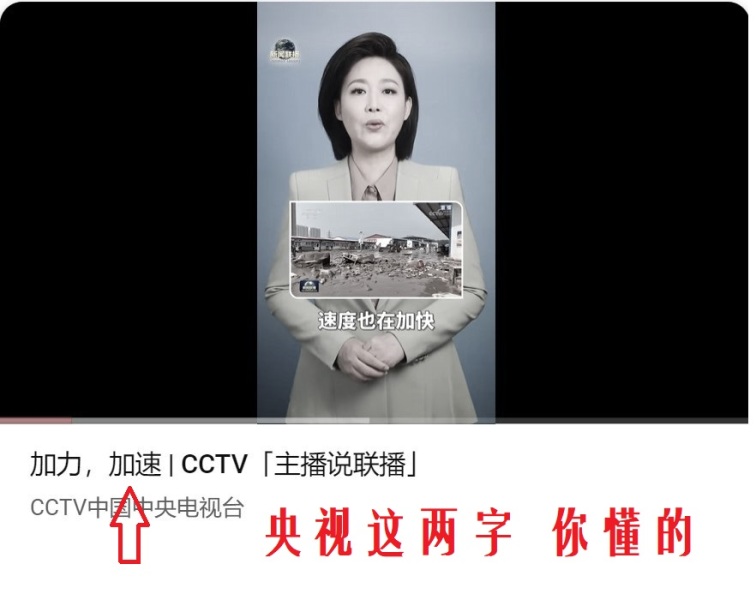The Chinese Communist Party (CCP) is deeply mired in debt, with its money-grabbing efforts continuing unabated. Its collapse may not be far off. (Jeff Nenarella/Dajiyuan)
[People News] On January 16, the Chinese Communist Party (CCP)'s official media published a joint statement between China and Sri Lanka. The statement began by noting that Sri Lankan President Ranil Wickremesinghe visited China from January 14 to 17 at Xi Jinping's invitation, during which he met with Xi, Premier Li Qiang, and Chairman Zhao Leji. The final clause of the statement expressed the president's gratitude to the Chinese government and people for their warm and friendly reception of him and the Sri Lankan delegation. It also extended an invitation to Chinese leaders to visit Sri Lanka. The CCP leaders expressed their thanks, and both sides agreed to maintain communication through diplomatic channels.
On the surface, the statement appears unremarkable. However, the final clause deviates from previous formulations by omitting Xi Jinping's name, especially in the context of expressing gratitude. Instead, it replaced his name with general references to the Chinese government and leadership. To illustrate the contrast, consider examples of similar joint statements issued after state visits to Beijing by presidents of other small nations invited by Xi Jinping.
On November 9, 2024, China and Indonesia issued a joint statement titled On Advancing the Comprehensive Strategic Partnership and Building the China-Indonesia Community of Shared Future. The statement noted Indonesian President Prabowo Subianto's visit to Beijing from November 8 to 10, during which he met with Xi Jinping, Li Qiang, and Zhao Leji. The final clause explicitly thanked Xi Jinping, as well as the Chinese government and people, for their warm reception, and invited Xi to revisit Indonesia at a mutually convenient time. Notably, the statement made no mention of Xi's or the CCP's response to the invitation.
On May 30, 2024, China and the United Arab Emirates issued a joint statement following UAE President Mohammed bin Zayed Al Nahyan's state visit to China from May 30 to 31 at Xi Jinping's invitation. The statement highlighted his meeting with Xi Jinping but did not mention meetings with Li Qiang and Zhao Leji, even though such meetings occurred. Similarly, the final clause expressed gratitude and admiration for Xi Jinping, the CCP leadership, and the Chinese people, separating Xi from other leaders to emphasize his stature.
March 15, 2024: Joint Statement Between China and Angola. China and Angola issued a joint statement on Establishing a Comprehensive Strategic Cooperative Partnership. The statement noted Angolan President João Lourenço's meetings with Xi Jinping, Premier Li Qiang, and Chairman Zhao Leji during his visit. The final clause expressed President Lourenço's heartfelt gratitude to Xi Jinping, the Chinese government, and the Chinese people, while also inviting Xi to visit Angola at a mutually convenient time. The statement did not mention Xi or the CCP's response to the invitation.
July 18, 2023: Joint Statement Between China and Algeria. China and Algeria issued a joint statement mentioning Algerian President Abdelmadjid Tebboune's visit from July 17 to 21, during which he met with Xi Jinping, Li Qiang, and Zhao Leji. The final clause highlighted President Tebboune's gratitude to Xi Jinping, wishing him "health and happiness," and extended an invitation for Xi to visit Algeria. Xi expressed his thanks, and the visit's timing was to be mutually agreed upon by both sides.
Notable Pattern Before the End of 2024. Up until December 2024, leaders of multiple countries visiting Beijing at Xi Jinping's invitation consistently expressed individual gratitude to Xi in the concluding clauses of joint statements, often inviting him for reciprocal visits. Some statements also acknowledged the Chinese government or leadership alongside Xi, but always with clear emphasis on him.
In the first joint statement of 2025, Sri Lankan President Ranil Wickremesinghe, whose country heavily relies on Chinese aid, did not individually thank Xi Jinping nor specifically invite him to visit Sri Lanka. Instead, the invitation was extended to "Chinese leaders," a subtle but striking deviation from prior protocol. This raises the question: Was President Wickremesinghe instructed to phrase his gratitude this way, or did the CCP revise his original wording? Either scenario suggests a shift in Xi's political standing.
The day before the statement's release, CCP state media provided significant clues. On the 90th anniversary of the Zunyi Conference, outlets like Xinhua News, PLA Daily, and CCTV published articles signaling a narrative shift. These pieces emphasized the CCP's "centralized and unified leadership" over the concept of "Xi as the core."
One PLA Daily article stated: "Whenever the entire Party firmly upholds the authority and centralized leadership of the Party Central Committee, the Party's cause achieves continuous victories; without this authority and centralized leadership, Party leadership weakens, and the Party's cause inevitably suffers setbacks." The language carries a strong undertone of critique toward Xi's previous concentration of power.
If the CCP has indeed recalibrated its stance on Xi Jinping's role, President Wickremesinghe's omission of direct thanks and invitation could be viewed as aligned with this new direction. Furthermore, if Xi's authority is diminished, questions arise about his ability to fulfill a third term effectively. The vague wording in the statement regarding future visits might hint that Xi could lack opportunities for international travel or be sidelined politically.
(Originally published in People News)








News magazine bootstrap themes!
I like this themes, fast loading and look profesional
Thank you Carlos!
You're welcome!
Please support me with give positive rating!
Yes Sure!